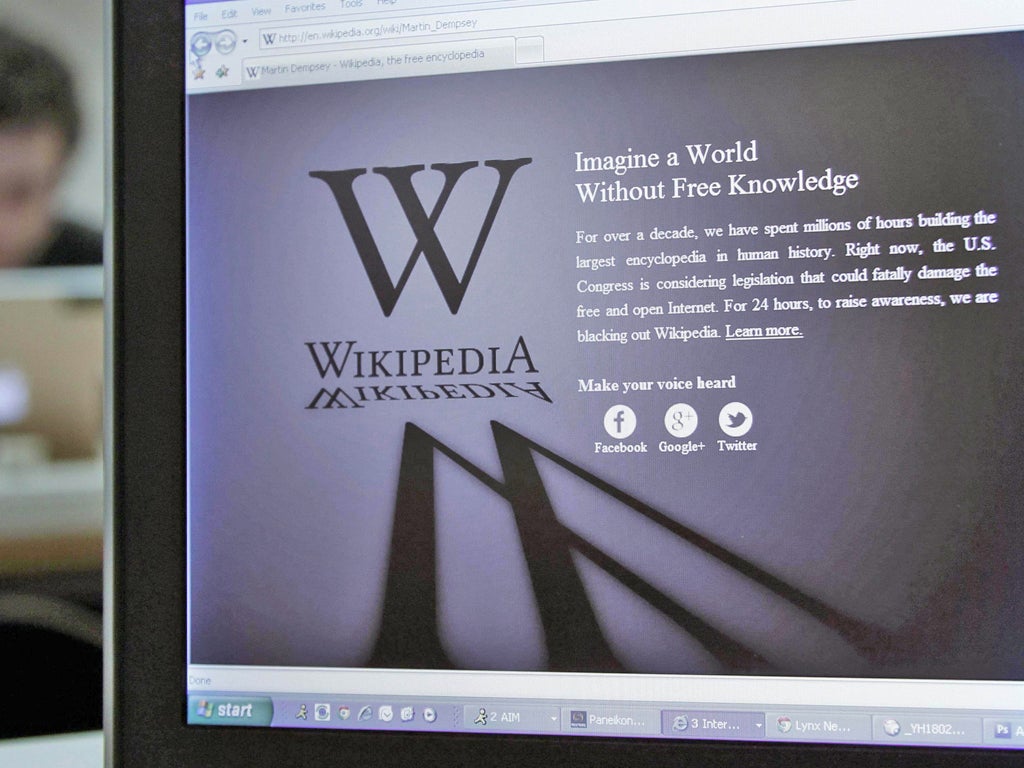Wikipedia: We have blocked 250 'sock puppets' for biased editing of our pages
Online reference site admits spin doctors and users with false online identities have been changing pages

Your support helps us to tell the story
From reproductive rights to climate change to Big Tech, The Independent is on the ground when the story is developing. Whether it's investigating the financials of Elon Musk's pro-Trump PAC or producing our latest documentary, 'The A Word', which shines a light on the American women fighting for reproductive rights, we know how important it is to parse out the facts from the messaging.
At such a critical moment in US history, we need reporters on the ground. Your donation allows us to keep sending journalists to speak to both sides of the story.
The Independent is trusted by Americans across the entire political spectrum. And unlike many other quality news outlets, we choose not to lock Americans out of our reporting and analysis with paywalls. We believe quality journalism should be available to everyone, paid for by those who can afford it.
Your support makes all the difference.Wikipedia, the largest reference work on the Internet, has made an unprecedented admission that its site is being manipulated by paid spin doctors and "sock puppets" using false online identities to change entries.
A long statement from the Wikimedia Foundation, the charitable organisation that oversees the sixth largest site on the web, revealed that some 250 sock puppets have been "blocked or banned" after being found to have carried out "non-neutral editing" of Wikipedia pages.
Wikipedia, which has grown to more than 30m articles (with more than 4m in the English language edition) since it was founded in 2001, uses a team of some 250,000 volunteer editors to protect the authenticity of its content.
But in the statement, Sue Gardner, Executive Director of the Wikimedia Foundation, acknowledged that it had been the victim of concerted activity in falsifying pages for commercial and other motives. "It looks like a number of user accounts - perhaps as many as several hundred - may have been paid to write articles on Wikipedia promoting organizations or products," she said, "and have been violating numerous site policies and guidelines, including prohibitions against sock puppetry and undisclosed conflicts of interest".
Suspicions have long existed that some public relations companies engaged in re-writing Wikipedia entries using obscure user accounts in order to present a more favourable picture of a client. Wikipedia users will be hoping that the latest statement indicates that the site will be doing more to tackle "editing for pay" and sock puppetry. "Our goal is to provide neutral, reliable information for our readers, and anything that threatens that is a serious problem," Gardner admitted. "Paid advocacy editing violates the core principles that have made Wikipedia so valuable for so many people." We are."
She said the foundation was "actively examining this situation and exploring our options", admitting that Wikipedia's own investigation findings had caused "shock and dismay" to some of its editors.
The practice of sock puppetry was highlighted by the case of the former Independent columnist Johann Hari who admitted in 2011 to having used a false identity to make "juvenile or malicious" edits to the Wikipedia pages of people he had previously clashed with. Hari no longer writes for The Independent.
Join our commenting forum
Join thought-provoking conversations, follow other Independent readers and see their replies
Comments